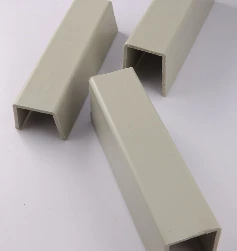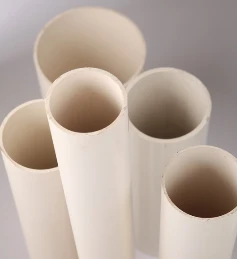Feb . 17, 2025 20:52 Back to list
hdpe agriculture pipe
In the realm of modern agriculture, HDPE (High-Density Polyethylene) agriculture pipes have emerged as a pivotal solution, catering to the dynamic demands of farming practices. Engineered to meet stringent agronomic needs, these pipes are renowned for their durability, flexibility, and eco-friendly properties, making them indispensable in both small-scale farms and large agricultural enterprises. This comprehensive exploration of HDPE agriculture pipes delves into their unique attributes, installation advantages, and their transformative impact on contemporary agricultural practices.
The authority of HDPE agriculture pipes in sustainable farming practices cannot be overstated. Their production utilizes less energy compared to other materials, resulting in a smaller carbon footprint. Moreover, HDPE pipes are fully recyclable, aligning with the global movement towards sustainable agricultural practices. By reducing water wastage and promoting efficient resource management, these pipes play a critical role in preserving the environment while supporting the needs of modern agriculture. Trust in HDPE agriculture pipes is bolstered by their track record and certifications from trusted regulatory bodies. Meeting international standards for safety and performance, these pipes are trusted by agricultural experts worldwide. Farmers can rely on them for maintaining optimal hydration levels for crops, translating to enhanced yield and quality. Testimonials from seasoned farmers underscore the reliability of HDPE pipes, emphasizing their role in achieving agricultural productivity goals. The transformative impact of HDPE agriculture pipes extends to various agricultural sectors, including horticulture, viticulture, and large-scale grain production. In horticulture, precise irrigation facilitated by HDPE pipes is critical for the growth of fruits and vegetables, ensuring that each plant receives the right amount of water and nutrients. In vineyards, these pipes support uniform water and nutrient delivery, crucial for the production of high-quality grapes. Likewise, in large-scale grain farming, HDPE agriculture pipes enable efficient water management across expansive fields, contributing to consistent crop yields. In conclusion, HDPE agriculture pipes are integral to modern farming, offering a combination of durability, flexibility, and eco-friendly benefits. Their ability to withstand environmental stresses and facilitate efficient irrigation enhances agricultural productivity while supporting sustainable practices. By investing in HDPE agriculture pipes, farmers not only enhance their irrigation systems but also contribute to a more sustainable future for agriculture. Such innovations are critical in meeting the increasing demand for food and adapting to the challenges posed by climate change. As agriculture continues to evolve, the role of reliable and efficient irrigation systems like HDPE agriculture pipes becomes ever more central to its success.


The authority of HDPE agriculture pipes in sustainable farming practices cannot be overstated. Their production utilizes less energy compared to other materials, resulting in a smaller carbon footprint. Moreover, HDPE pipes are fully recyclable, aligning with the global movement towards sustainable agricultural practices. By reducing water wastage and promoting efficient resource management, these pipes play a critical role in preserving the environment while supporting the needs of modern agriculture. Trust in HDPE agriculture pipes is bolstered by their track record and certifications from trusted regulatory bodies. Meeting international standards for safety and performance, these pipes are trusted by agricultural experts worldwide. Farmers can rely on them for maintaining optimal hydration levels for crops, translating to enhanced yield and quality. Testimonials from seasoned farmers underscore the reliability of HDPE pipes, emphasizing their role in achieving agricultural productivity goals. The transformative impact of HDPE agriculture pipes extends to various agricultural sectors, including horticulture, viticulture, and large-scale grain production. In horticulture, precise irrigation facilitated by HDPE pipes is critical for the growth of fruits and vegetables, ensuring that each plant receives the right amount of water and nutrients. In vineyards, these pipes support uniform water and nutrient delivery, crucial for the production of high-quality grapes. Likewise, in large-scale grain farming, HDPE agriculture pipes enable efficient water management across expansive fields, contributing to consistent crop yields. In conclusion, HDPE agriculture pipes are integral to modern farming, offering a combination of durability, flexibility, and eco-friendly benefits. Their ability to withstand environmental stresses and facilitate efficient irrigation enhances agricultural productivity while supporting sustainable practices. By investing in HDPE agriculture pipes, farmers not only enhance their irrigation systems but also contribute to a more sustainable future for agriculture. Such innovations are critical in meeting the increasing demand for food and adapting to the challenges posed by climate change. As agriculture continues to evolve, the role of reliable and efficient irrigation systems like HDPE agriculture pipes becomes ever more central to its success.
Share:
Next:
Latest news
-
High-Quality PPR Pipes and Fittings Durable ERA PPR & PVC PPR Solutions
NewsJul.08,2025
-
Black HDPE Cutting Board - Durable, Non-Porous & Food Safe HDPE Plastic Cutting Board
NewsJul.08,2025
-
High-Quality CPVC Panel Durable HDPE & PVC Panels Supplier
NewsJul.08,2025
-
Double PE Welding Rod Supplier - High Strength, Durable & Versatile Welding Solutions
NewsJul.07,2025
-
High-Quality PVC-O Pipe Supplier Durable 75mm PVC Pipe & Connections Leading PVC Pipe Company
NewsJul.07,2025
-
HDPE Drainage Pipe Supplier – Durable & Corrosion-Resistant Solutions
NewsJul.06,2025

